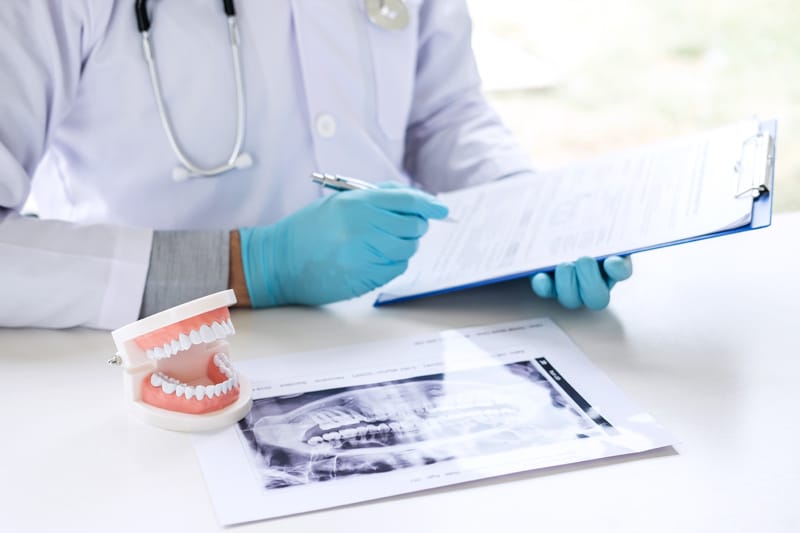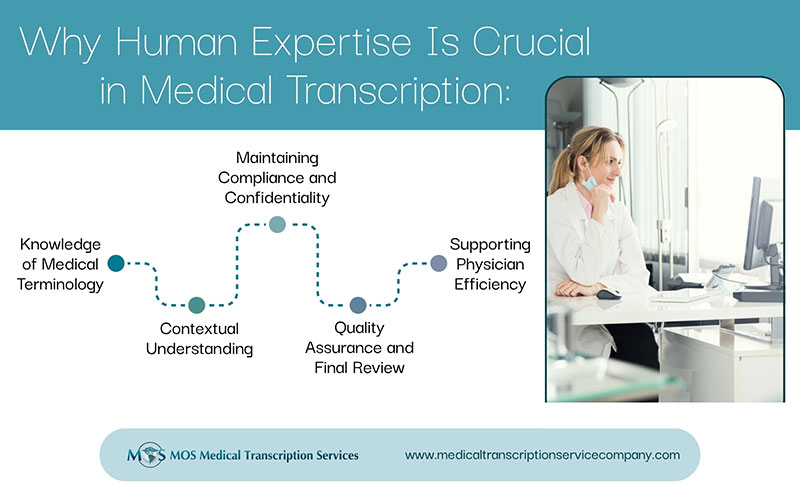
Keeping accurate and clean patient records and managing them efficiently is important for dentists to provide optimal care to their patients. With EHR system, healthcare practitioners are struggling to draft patient records and the same applies to dentists too. They are forced to spend too much time documenting patient data and this negatively affects their productivity as well as the patient satisfaction. An effective solution to simplify documentation is hiring a medical transcription company that can transcribe the dentist’s dictations into accurate transcripts or records.
Good record keeping is fundamental for good clinical practice and is an essential skill for dental practitioners. A dental consultation involves several concerns and treatment options like oral examination, checking for any risks of tooth decay, cavity, gum diseases and then recommending oral hygiene and preventive measures like tooth filing, dental implants, dentures etc. All of these procedures require accurate patient data to provide optimal care. Keeping all the patient records safe can also serve as defense in case of a malpractice lawsuit.
Digital Dictation and Speech Recognition for Dentists
Digital dictation and speech recognition are two technologies in the healthcare industry that are useful for medical doctors. However, dentists too may be able to improve productivity and efficiency with the technology. Just like general physicians, dentists also face the problem of mounting paperwork. So to make the process of medical documentation easier, like general physicians, dentists use speech recognition and digital dictation to reduce report turnaround time and improve patient care. Dentists can use digital voice recorders and transcription solutions to record a patient’s visit and other related data in the electronic record and with speech recognition, they can quickly and easily add notes to a patient’s history or complete other every day reporting processes.
Although speech recognition is useful for real-time medical documentation, it is important to understand that it comes with some disadvantage that can compromise the quality of the medical records.
- One of the main disadvantages of speech recognition is poor accuracy. This is because the software cannot understand the complexities of jargon or phrasing, and it can lead to misinterpretation. It fails to understand the context of particular references and is incapable of choosing the correct meaning.
- Another disadvantage of speech recognition is that it may not be able to transcribe the words of those who speak quickly or have a different or thick accent. It requires physicians to speak consistently and clearly at a slow pace to minimize errors, which is not possible during busy hours.
- It is believed that automating a process can speed it up but speech recognition may not be like that. It requires more time to review and edit the medical records for any spelling mistakes, punctuation error etc. and this can affect your workflow and productivity.
- To get the best results from speech recognition software, it is important to choose a quiet environment. It does not provide accurate results if the recording is made in a noisy background. This is because the software cannot differentiate between the dentist’s speech and other voices. And it is not possible for dentists to wear microphones and noise-cancelling headsets while treating the patients.
Considering all the above points, it shows that medical transcription is more reliable than automated transcription. Therefore, to obtain error-free, higher quality medical documentation, dentists could outsource their transcription requirements to a dedicated provider of dentistry transcription services. They offer transcription services for various medical reports including history and physical examination reports, operative reports, medical evaluations and other important records.


